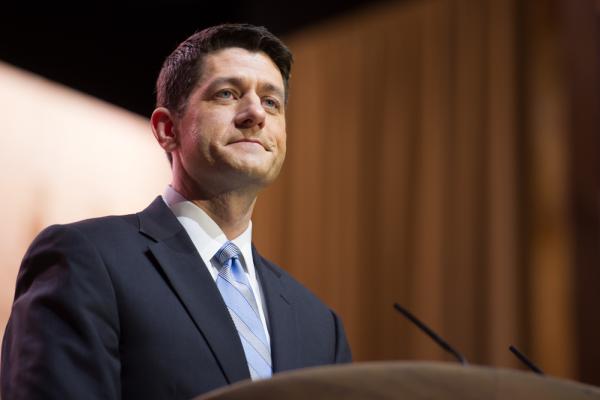Puerto Rico may finally be getting help with its debt.
The island has more than $70 billion in debt, and recently defaulted on a $422 million payment. Puerto Rico is effectively unable to pay most of this debt, and before May 18, U.S. lawmakers hadn't been able to agree on a deal to help the territory.
But now Speaker Paul Ryan has struck a compromise deal with the Department of Treasury to help Puerto Rico restructure its debt and establish a financial oversight board.
POLITICO reports:
The agreement represents a breakthrough on an issue that has been stuck in congressional limbo for months. Ryan (R-Wis.) said last year that helping Puerto Rico restructure its multi-billion-dollar debt would be a top priority for the first quarter of 2016. But conservatives balked at [House Natural Resources Chairman Rob] Bishop’s initial proposal, following a series of ads that labeled the measure a “bailout.”
Democrats also refused to support that earlier deal because of a minimum wage decrease included in the measure. Congressional leaders on both sides of the aisle have pushed back on the bailout label, and the bill expressly prohibits federal taxpayer funds from paying down Puerto Rico’s debt.
Some lawmakers remain strongly opposed to the deal, including Rep. Any Barr (R-Ky.) who wants to prohibit the federal government from bailiing out any state, city, or jurisdiction. Rep. Connie Mack (R-Fla.) has also advocated against the deal, as she represents a group of bondholders who oppose any move to help Puerto Rico restructure its debt.
Debt relief advocates, on the other hand, are very hopeful about the deal, even as they push for more protections for the poor.
"Congress should pass this Puerto Rico debt legislation as soon as possible. There can be no economic growth in Puerto Rico until the debt is restructured," said Eric LeCompte, head of Jubilee USA, a religious development coalition.
“As the approval process in Congress moves forward we will work on some improvements. We need clear targets to reduce child poverty on the island. We want legislation that protects ordinary workers. We want local democracy to be protected."
Read more at POLITICO.
Got something to say about what you're reading? We value your feedback!
